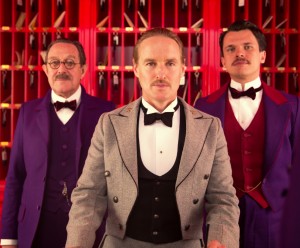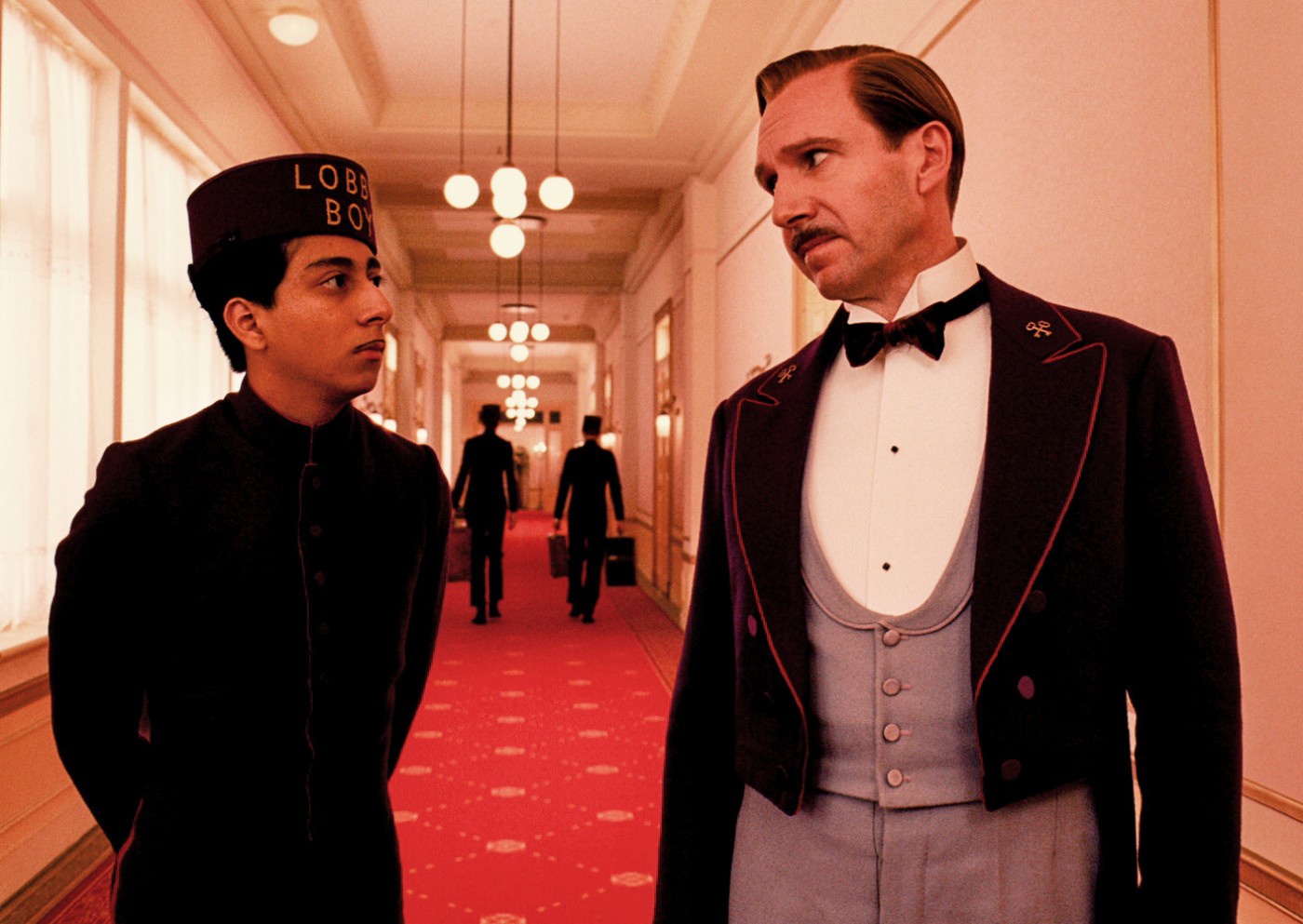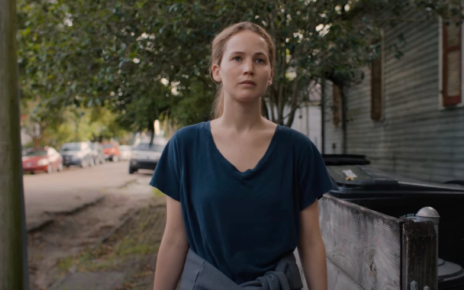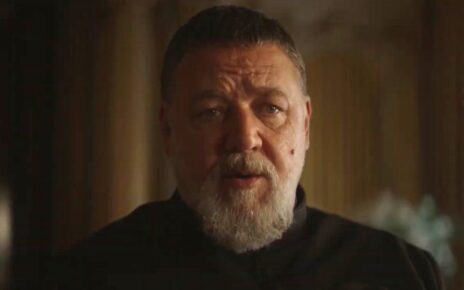Welcome to Zubrowka. Don’t worry that it’s 1932 and there are militias around every turn; the alpine nation doesn’t exist. But it has a bitchin’ b&b run by Gustave H (Ralph Fiennes). A flashback within a flashback, The Grand Budapest Hotel is much more a colorful memoir of Gustave’s adventures than anything truly inn-related. Gustave is an odd combination of exacting and endearing. While exaggeratedly detailed in his conciergin’ and equally demanding of his reports, he yet acquires a protégé of sorts, lobby boy Zero (Tony Revolori), on the strength of a candid q&a and little more. Does Zero have to wear a hat that states “Lobby Boy?” Of course he does.
Gustave has a habit of treating the elderly dowager hotel patrons very, very well ifyouknowwhatImean, and his generosity pays off well when one grants him a valuable painting on her deathbed. This serves as wonderful excuse to get jealous family members Dmitri (Adrien Brody) and Jopling (Willem Dafoe) into play. The key to Grand Budapest is the stylish unbridled hyperbole surrounding the hotel, its guests and the play for the octogenarian’s fortune. I’m not sure I’ve quite conveyed that Grand Budapest is the most fun I’ve had at the movies in a very long time.
Wes Anderson is at the top of his game in both writing and directing. Sure, you’ll expect the standard Wes-homie parade — Brody, Bill Murray, Owen Wilson, Jason Schwartzman. That’s just a small part of the fun. From the lobby boy’s pencil-drawn moustache to the four-skulled enforcer knuckle rings worn by Willem Dafoe, the detail is this film is sublime. Take the geographically-correct Mexico-shaped birthmark on the face of Agatha (Saoirse Ronan). Anderson has spent so much time imagining his characters, that if in real life Guatemala annexed Baja California, such would certainly be reflected on Agatha’s upper right cheek.
The look of a Wes Anderson film is like no other. Nobody frames a shot quite like this guy. I don’t just refer to the fact that he defies convention by having actors speak directly into the camera (I love that convention, btw). I imagine his films are 100% like the storyboards. I feel like most directors want to impress with the shot by  getting us to appreciate what we’re seeing and imagine what we’re not. Wes Anderson presents the frame with exactly what you need to see, no more, no less. He likes the gimmick where the pull out shot shows you a detail you may have missed – something that tells you he’s in control, he’s got a good command of the subject and, most importantly, he’s having fun. When Zero knocks on the delivery-truck sized prison gate, we assume that’s the only entrance/exit, but then the answer comes from a door to the left we didn’t see until the far shot gave us that picture. Had the long shot been established before the graded work, the impact of humor wouldn’t have been as great. Wes Anderson is a master of this – he may not be my favorite director right now, but it’s hard to argue consecutive four-star films.
getting us to appreciate what we’re seeing and imagine what we’re not. Wes Anderson presents the frame with exactly what you need to see, no more, no less. He likes the gimmick where the pull out shot shows you a detail you may have missed – something that tells you he’s in control, he’s got a good command of the subject and, most importantly, he’s having fun. When Zero knocks on the delivery-truck sized prison gate, we assume that’s the only entrance/exit, but then the answer comes from a door to the left we didn’t see until the far shot gave us that picture. Had the long shot been established before the graded work, the impact of humor wouldn’t have been as great. Wes Anderson is a master of this – he may not be my favorite director right now, but it’s hard to argue consecutive four-star films.
I didn’t want to give this film four stars because I gave Moonrise Kingdom four stars. Fair is fair, however, and a great film is a great film. I was never that “you’ve got to see Rushmore!” guy. Meh. It was cute, quirky and long. Now? Well, suffice to say, I anxiously await his next.
One concierge of extraordinary sort
Proved many an aged nana escort
A recent affair
Spurred dangerous heir
Be careful there, Lord Voldemort
Rated R, 100 Minutes
D: Wes Anderson
W: Wes Anderson
Genre: Silly period fiction
Type of person most likely to enjoy this film: Fans of the intellectually goofy
Type of person least likely to enjoy this film: The anticipators of Grown Ups 3



